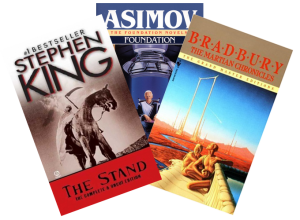Government and scientific writing is usually done in this really bizarre institutional voice. You know the one I mean; you’ve read it and struggled with it, even if you’ve never deliberately tried to write it. It’s a weird, hyper-formalized, passive-verbed, long-winded writing style that you discovered had invaded your own writing when you were just starting out. You were probably praised for it, too— told it was “good English.”
Actually, it’s terrible English. Institutional Voice, aka Bureaucratese, avoids sentence subjects. All verbs are rendered in the passive. “It was discovered that…” “The decision was made that…” “The result was…” “The Department’s investigation demonstrated…” “The data show…”
Removing the subject was supposed to discourage egotistical self-aggrandizement; the text would be the authority, not any particular author. What really happened is that removing the human subject removed any sense of humanity, that yes, there is a caring, feeling person behind the keyboard. Or, as sometimes happens, that there is a person behind the keyboard who doesn’t care, or in fact glories in your misery. Institutional voice functions to put distance between author and reader. The reader cannot judge the author’s intentions or morals, and the author can say the most horrible things without once considering his audience. [0]
Part of our journey as writers is discovering our own authentic voices. Like glitter, Institutional Voice is pervasive, and as soon as you think you’ve removed the last of it from your writing, you’ll find it cropping up in the most bizarre and unexpected places. We spent our lives learning, “This is the Voice of Authority, this is the Voice of Somebody Who Knows What They’re Talking About,” and we’ll slip into it in order to disguise our own uncertainties about our prose.
It sounds easy to stay away from Institutional Voice. “Just write the same way you speak!” they’ll tell you [1]. There’s two problems with that approach. First, have you ever read the transcript of a live interview? People speak in sentence fragments and run-ons and run-on sentence fragments all the time. And second, once you’ve been writing this crap for so long, you’ll start speaking that way, too.
[0] “The contents of Boxcar 113 will be disposed of according to the standard procedures.” To be spoken in a funny German accent, because, hey, we’re all about stereotyping and the glory of Godwin in this blog.
[1] “They” lie.

